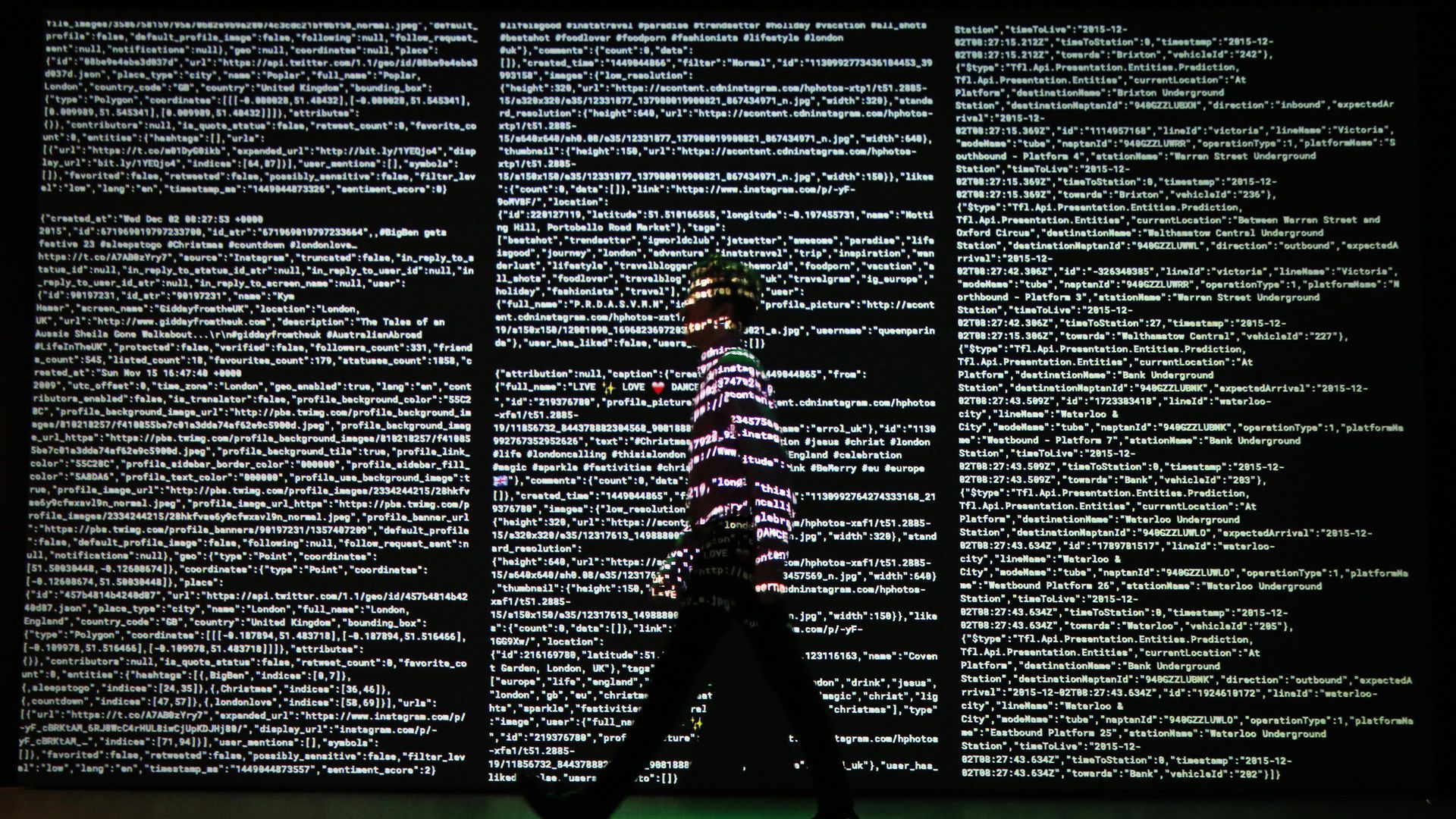Big data, attention and wealth
Add Axios as your preferred source to
see more of our stories on Google.

Photo: Peter Macdiarmid/Getty/Somerset House
A core obsession of internet reformers is to loosen Big Tech’s stranglehold on the financial spoils from the data they vacuum up, and spread the riches around. But some economists say the payoff to ordinary Americans will be much less than many imagine.
What's happening: Economists say we live in an age of income inequality not seen since before the Great Depression — and possibly since the Gilded Age at the end of the 19th century. But they struggle to identify precisely why it's happened.
- What they do know: A growing proportion of the nation's wealth is concentrated at the very top. In the 1920s, more than 20% of U.S. wealth was held by 0.1% of the population. The figure plunged over the subsequent decades, but now is back near 20%, according to a January paper by Gabriel Zucman, a professor at UC Berkeley.
- And the tech-led economy appears to be a big reason for the gap, with wealth concentrated among a few companies and billionaires who gather up our data, organize it and turn out products like perfectly targeted ads.
In her new book, "The Age of Surveillance Capitalism," Shoshana Zuboff says power over this data has eclipsed the traditional economy "as the fountainhead of capitalist wealth and power in the twenty-first century.”
- But, speaking with Axios, Zuboff said no one knows the size of what she calls the "surveillance economy." "This is something that I plan to tackle with collaborators in a next phase of work."
- And she and economists queried by Axios say that big data — while a powerful force in the economy — is still not the center of the inequality problem.
David Autor, a much-cited MIT economist, says that not data but attention is at the core of Silicon Valley's wealth:
"Remember that Google and Facebook are in the business of selling your attention to their advertisers, i.e., you are the product. Whatever allows them to hold your attention is what makes them so valuable. It could be their ownership of your (and everyone else's) data, but I don't think that's the heart of it."
Breaking it down: Carnegie Mellon's Lee Branstetter says that, together, the big four tech companies that rely on huge stores of collected data — Facebook, Amazon, Netflix and Google — earned about $63 billion profit in 2018. If you add Apple (the second 'A' in the FAANG companies), you get to about $123 billion.
- The most-cited recent study of inequality, Thomas Piketty's "Capital in the Twenty-First Century," says the share of the income pie earned by the bottom 50% of earners has dropped by some 10 percentage points since the 1970s.
- If it had not done so, an additional $2.1 trillion in national income would have gone to the bottom 50% (10% of last year's $21 trillion in GDP).
- This means that combined, Big Tech profits were less than 6% of the total drop in the income pie. "94% of the income gap is other causes. You could obliterate their profit entirely and it would not make a dent in this income gap," Branstetter tells me.
"The technological change over the last few decades has been much larger than Big Tech and its control over data, and it's been going on much longer than they've even been around," says Branstetter.
The bottom line: The economy has shifted with the ability of companies of all types to collect and marshal data free of charge. Economists are wrestling with how to measure it. But, given its scale, the push to widen the capture of the riches is only likely to grow.
